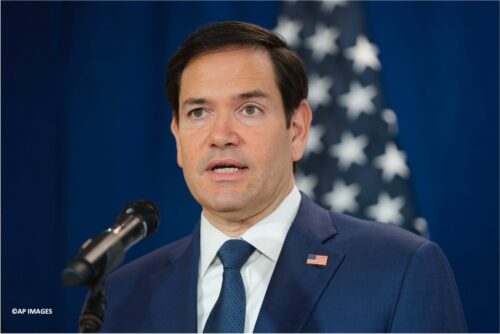
The Hill: For Washington, the ethnic cleansing of 120,000 Armenians seems to have been an acceptable price to pay to secure Azerbaijan’s energy cooperation
The U.N. Climate Change Conference has long been marred by accusations of “greenwashing” by authoritarian host countries seeking to distract from their human rights abuses. The latest summit, known as COP29, promises to outdo the organization’s already-dismal track record, The Hill writes.
The decision for Azerbaijan to host the conference comes just months after that nation’s ethnic cleansing of Artsakh, which forcibly displaced the region’s entire Armenian population.
Despite being among the most fossil fuel-dependent economies in the region, Azerbaijan was granted the privilege of hosting COP29 after Armenia dropped its veto in exchange for the release of 32 Armenian prisoners.
This is one of many examples of Azerbaijan prolonging the arbitrary detention of unjustly detained prisoners of war in exchange for concessions, in violation of international law. Dozens of Armenian POWs, civilian captives and Nagorno-Karabakh officials remain in Azerbaijan’s illegal detention, where they face torture and abuse, along with many Azerbaijani journalists and opposition activists arrested in a recent wave of brutal crackdowns.
Oil and gas have long served as cover for Azerbaijan’s abusive regime. For decades, the U.S. has sought to position Azerbaijan as a partner in both the diversification of Europe’s energy supply and the containment of Russia and Iran. This stance toward the region has recklessly enabled Azerbaijan’s authoritarianism—and emboldened its aggression against the Armenians of Nagorno-Karabakh—through military assistance, arms sales and generous economic inducements.
While U.S. law prohibits Azerbaijan from receiving military assistance due to its blockade of Armenia in the 1990s, successive American administrations have bypassed these restrictions using a waiver authority justified in the name of regional security interests. Unconditional U.S. support to Azerbaijan in exchange for regional energy and security cooperation has come at the cost of human rights at home and abroad, culminating in what Freedom House recently described as the deliberate and systematic ethnic cleansing of Nagorno-Karabakh’s entire Armenian population in September 2023. To this day, the U.S. has imposed no meaningful consequences for this on Azerbaijan.
If the goal of this disastrous policy was to establish Azerbaijan as a reliable Western strategic partner in the region, it has failed to yield results. Since Russia invaded Ukraine, Azerbaijan has bolstered energy ties with Moscow, including a significant expansion of Russian state energy giant Lukoil’s stake in the very natural gas fields exporting energy to Europe. And just weeks after the ethnic cleansing of Artsakh, Azerbaijan’s state oil company signed a deal with Lukoil to transport crude to its refinery in Turkey, evading international sanctions on Russia’s energy industry. Azerbaijan has also expanded energy ties with Iran, whose state oil company owns a 10 percent stake in Azerbaijan’s main energy fields.
Despite Baku’s expanding partnership with Moscow and Tehran and continued military aggression, the U.S. has been ramping up its support for the Baku COP29 summit. In a letter to his Azerbaijani counterpart, President Biden lauded the country’s role as “a significant pillar of global energy security” — marking a break with the administration’s previously stated policy. For Washington, the ethnic cleansing of 120,000 Armenians seems to have been an acceptable price to pay to secure Azerbaijan’s energy cooperation. Congressional leaders recently urged the administration to use the COP29 summit to scrutinize Azerbaijan’s human rights and environmental record. Sixty House and Senate members issued a letter to Secretary of State Antony Blinken urging the U.S. to prioritize them.


